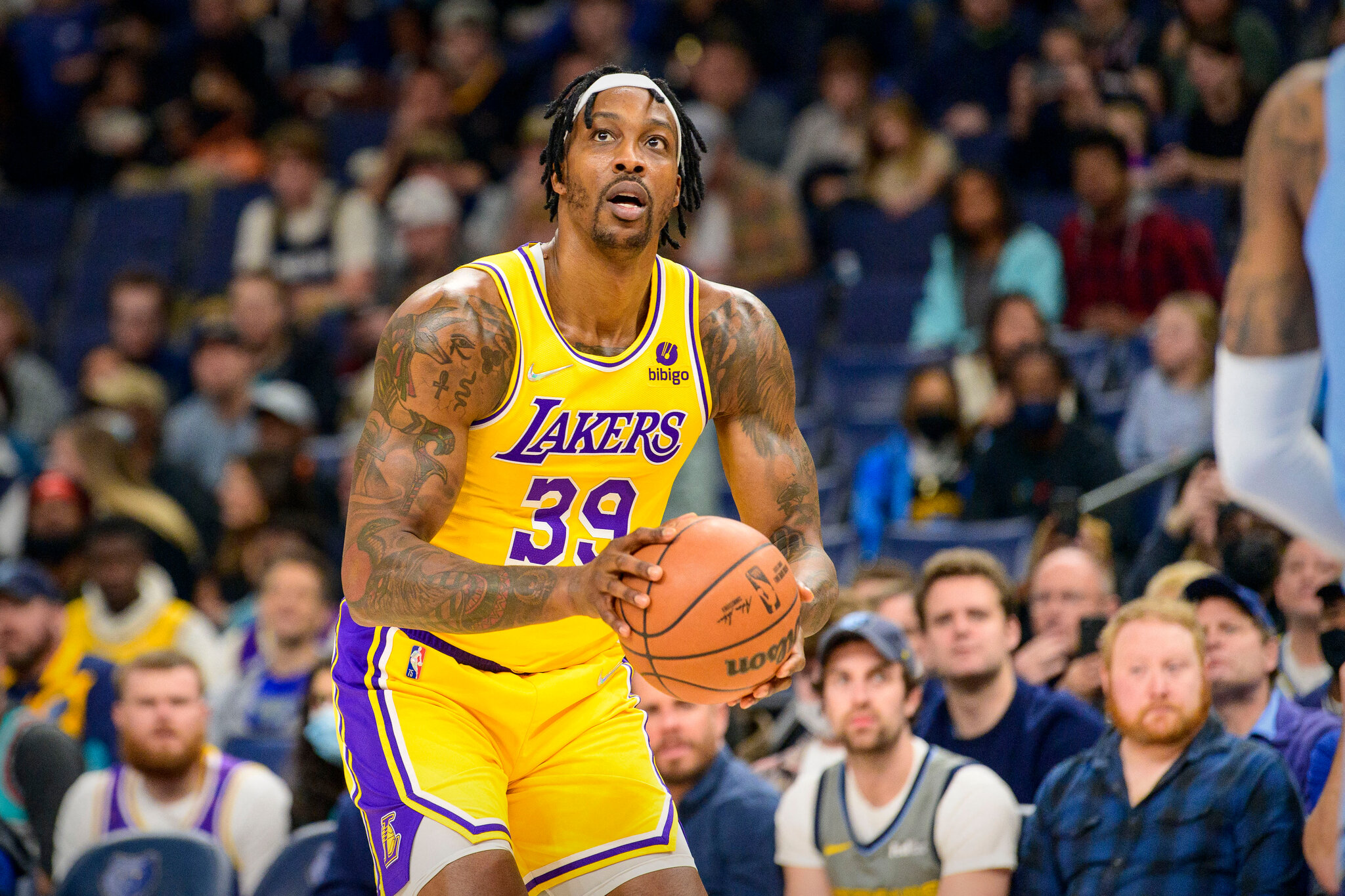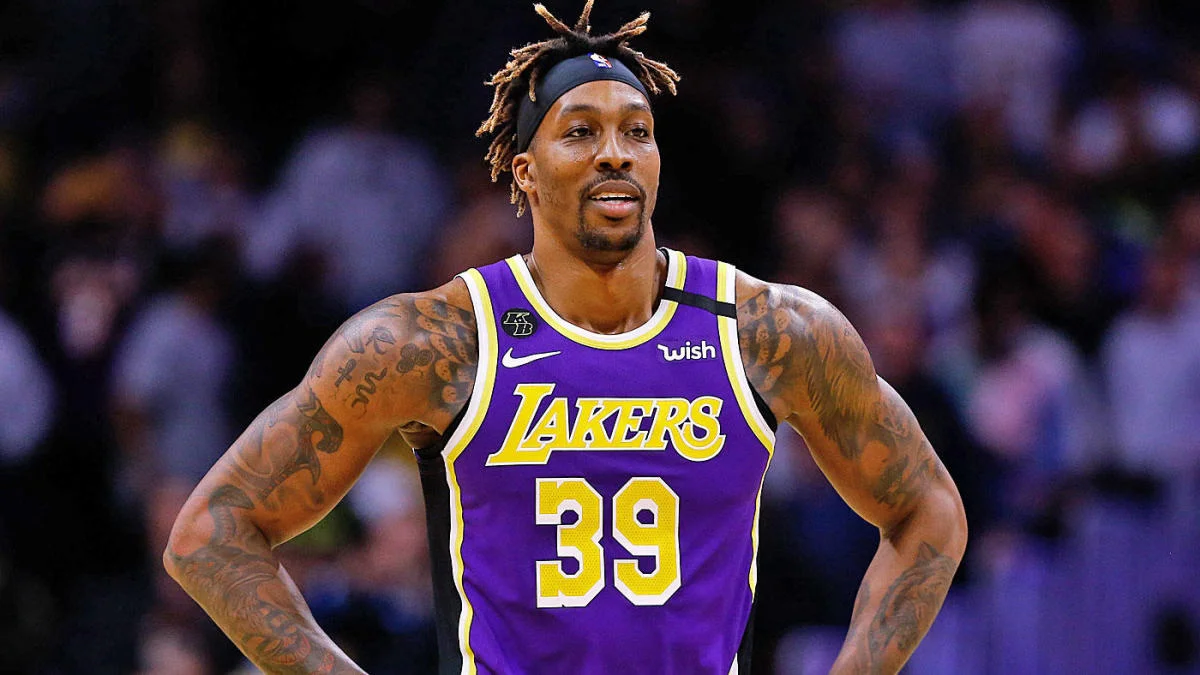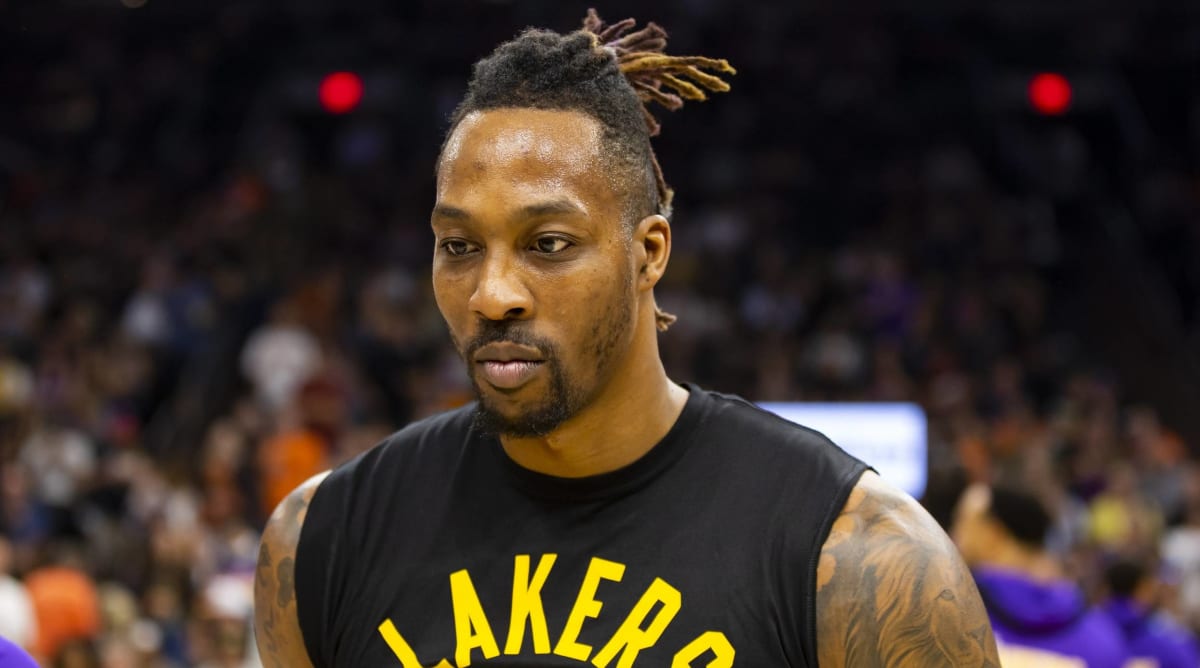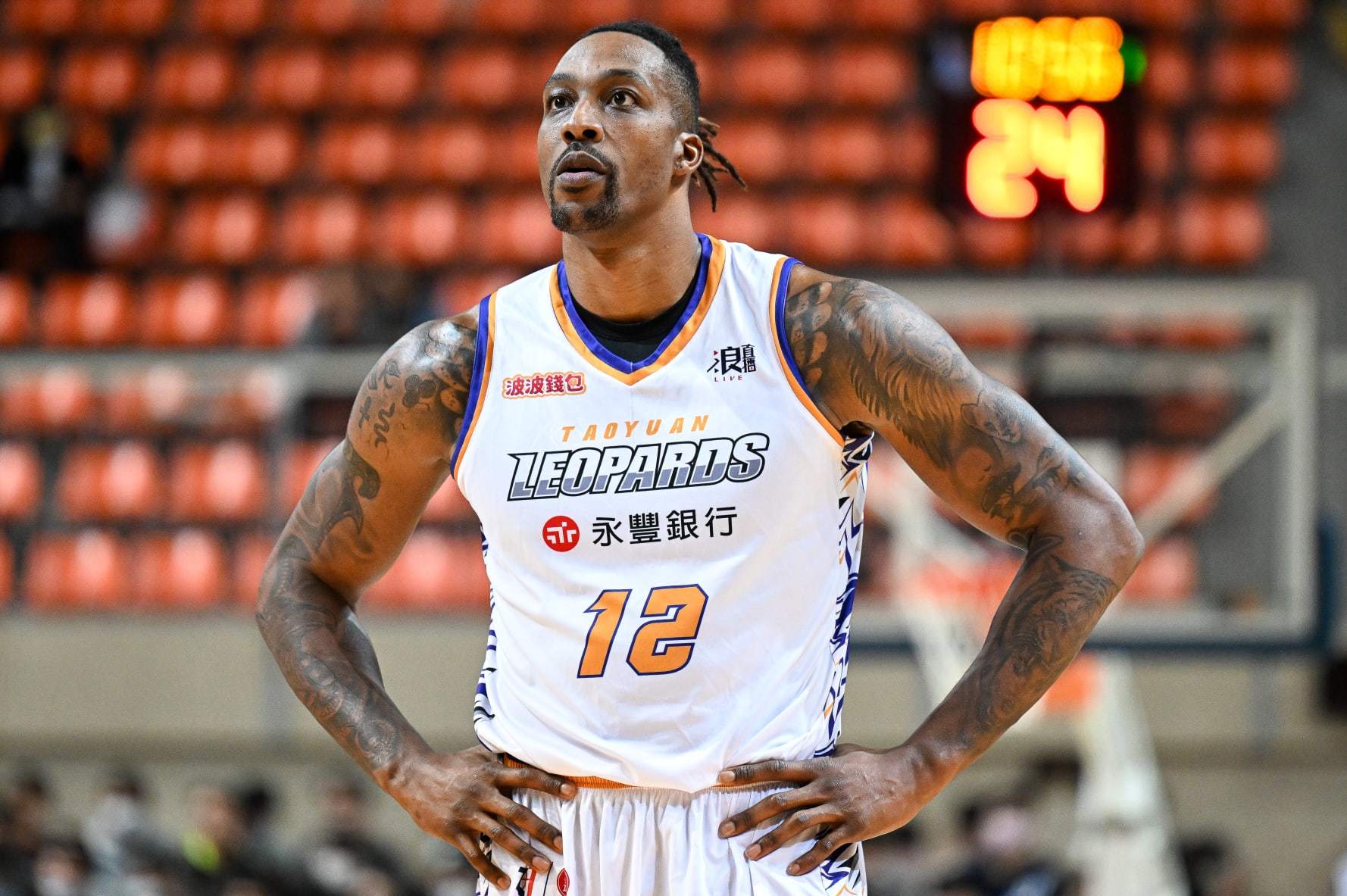In a bold comparison that has sparked discussions across basketball forums and social media, Dwight Howard has reignited the debate over NBA legacies by positioning himself above New York Knicks icon, Patrick Ewing. Drawing inspiration from a post by fellow NBA champion Nick Young, Howard isn’t just throwing his hat in the ring; he’s aiming for the top.

Nick Young’s provocative statement on X (formerly Twitter) drew a parallel between Kevin Garnett and Kobe Bryant, suggesting that just as Garnett might be underrated when compared to Tim Duncan, other players might also surpass those they are compared to. Howard, leveraging this perspective, boldly claimed:
“Aye Nick I might be the Kobe to Pat Ewing MJ people scared to say I was better.”
A Career Overview: Howard vs. Ewing
Dwight Howard’s illustrious 18-season career has seen him play for seven teams, including significant stints with the Orlando Magic and the Los Angeles Lakers. Howard’s stats are impressive: an average of 15.7 points, 11.8 rebounds, and 1.8 blocks per game over 1,242 regular-season games. His accolades include eight All-Star selections, three Defensive Player of the Year awards, and a pivotal role in winning an NBA championship.
Patrick Ewing, on the other hand, is no less of a legend. In his 17 seasons, mainly with the Knicks, Ewing racked up averages of 21.0 points, 9.8 rebounds, and 2.4 blocks across 1,183 games. An 11-time All-Star and Hall of Fame inductee in 2008, Ewing’s legacy is deeply embedded in NBA history.
The Hall of Fame Debate
The question of whether Dwight Howard deserves a spot in the Naismith Memorial Basketball Hall of Fame brings additional layers to this debate. Despite his defensive prowess and significant contributions to the teams he played for, Howard was notably left off the NBA’s Top 75 list in 2021. Yet, his career accomplishments, including leading the NBA in blocks from 2008 to 2010 and his crucial role in the Lakers’ 2020 championship, make a compelling case for his induction.

Of the 16 Defensive Player of the Year winners eligible for the Hall of Fame, 10 have been inducted. With Howard ranking 13th on the all-time blocks list and his significant impact during his prime, his omission raises questions and, perhaps, reflects the controversies that have occasionally overshadowed his on-court achievements.
Legacy and Comparisons
Comparing players across eras is always challenging due to changes in the game’s style, rules, and player conditioning. Howard and Ewing played in different NBA eras, each dominated by distinct styles and expectations. While Ewing was a quintessential center in a time when post play and mid-range shots were the norms, Howard has bridged the gap between traditional back-to-the-basket play and the more dynamic, defense-oriented roles seen in modern big men.
As Dwight Howard’s claim stirs up the NBA community, it invites a deeper reflection on what constitutes greatness in basketball. Is it the number of titles and awards, or is it something less tangible, like influence or the ability to redefine a position? Howard’s comparison to Ewing not only highlights his career but also sparks a broader discussion on legacy and recognition in sports.

This debate is far from settled, and as fans and analysts weigh in, it’s clear that both Howard and Ewing have left indelible marks on the NBA. Whether one truly surpasses the other may depend on personal biases and the aspects of the game one values most. Nevertheless, Howard’s audacity to reignite this debate underscores not just his confidence in his achievements but also the ever-evolving nature of legacy in professional sports.

I am a writer with a passion for technology and gaming. I write about a variety of subjects, including Esports, Games, Shows, and Sports. I create engaging and informative content for Hiptoro.

